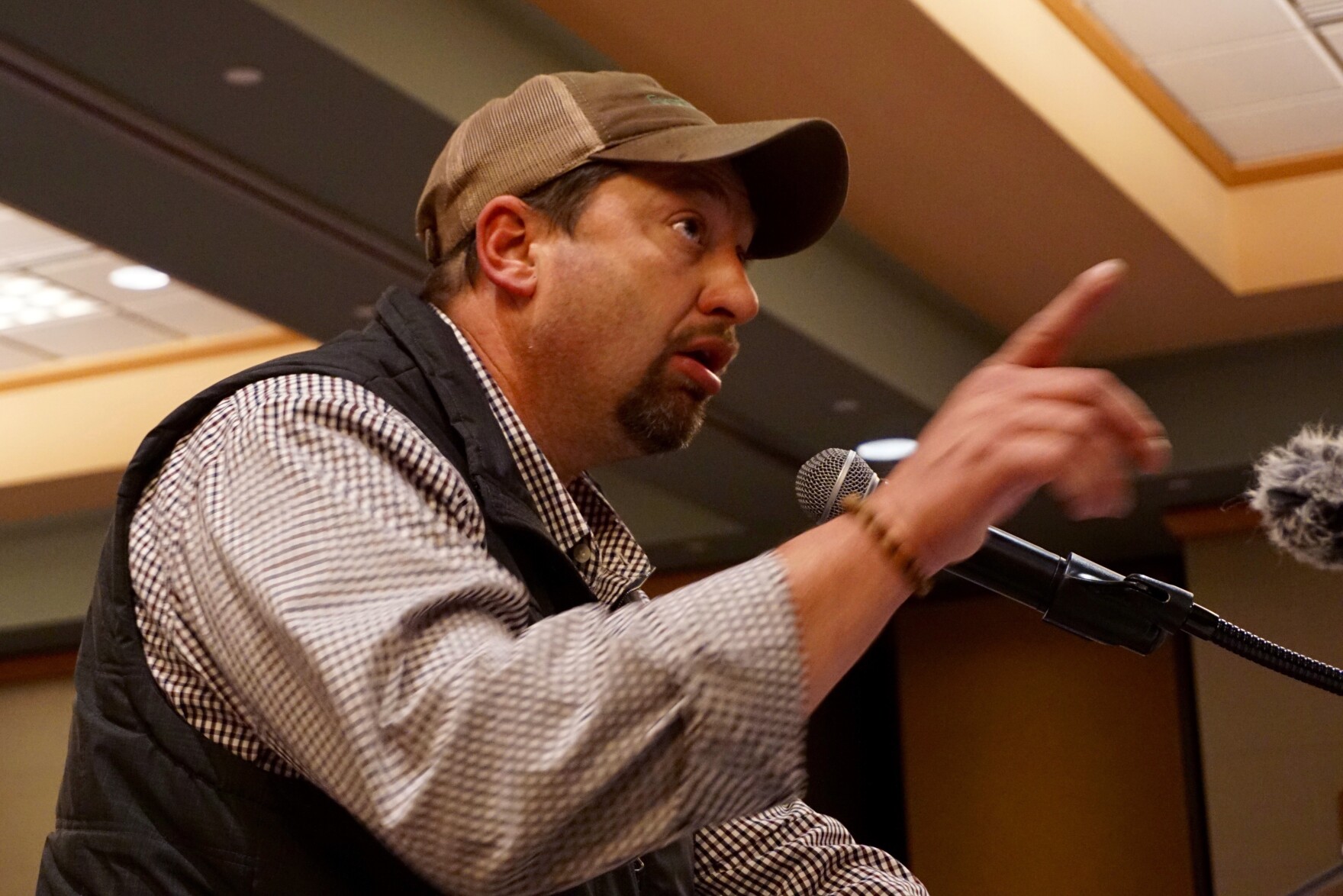The coronavirus highlights many of our vulnerabilities, including the system we use to get food from the farm to the table. Lately, the pandemic has forced U.S. farmers to face the unthinkable. They plowed under perfectly good vegetables when schools and restaurants shut down and their market vanished. Livestock producers have euthanized hogs and chickens. They couldn’t get the meat to consumers when workers got sick and packing plants closed.
The growing season also brings migrant workers to U.S. farms. They come for jobs they need. But this year, some come wearing face masks, worried they may take the virus home to their families.
For this episode, Trey speaks with his colleague Loretta Williams about her conversations with American farmers about their challenges of producing food in the age of COVID-19.
This episode of Us & Them is presented with support from the West Virginia Humanities Council and the CRC Foundation.
Subscribe to Us & Them on Apple Podcasts, NPR One, RadioPublic, Spotify, Stitcher or wherever you download podcasts. You also can listen to Us & Them on WVPB Radio. Tune in on the fourth Thursday of every month at 8 p.m. with an encore presentation on the fourth Saturday at 3 p.m.
